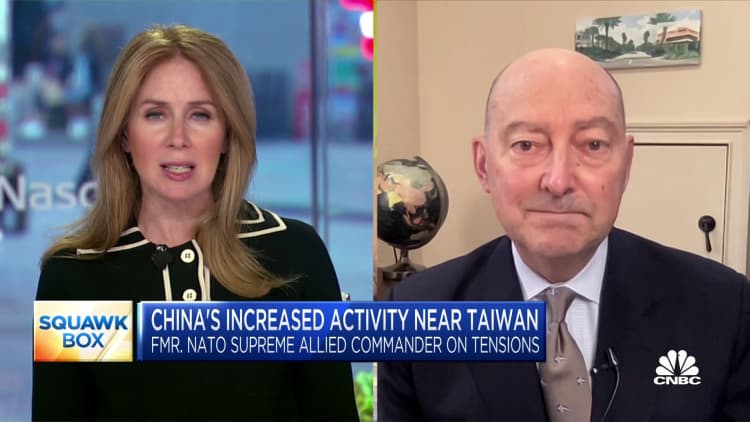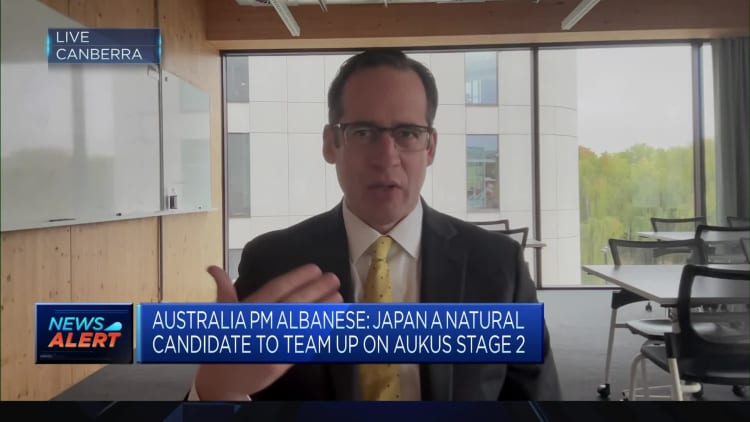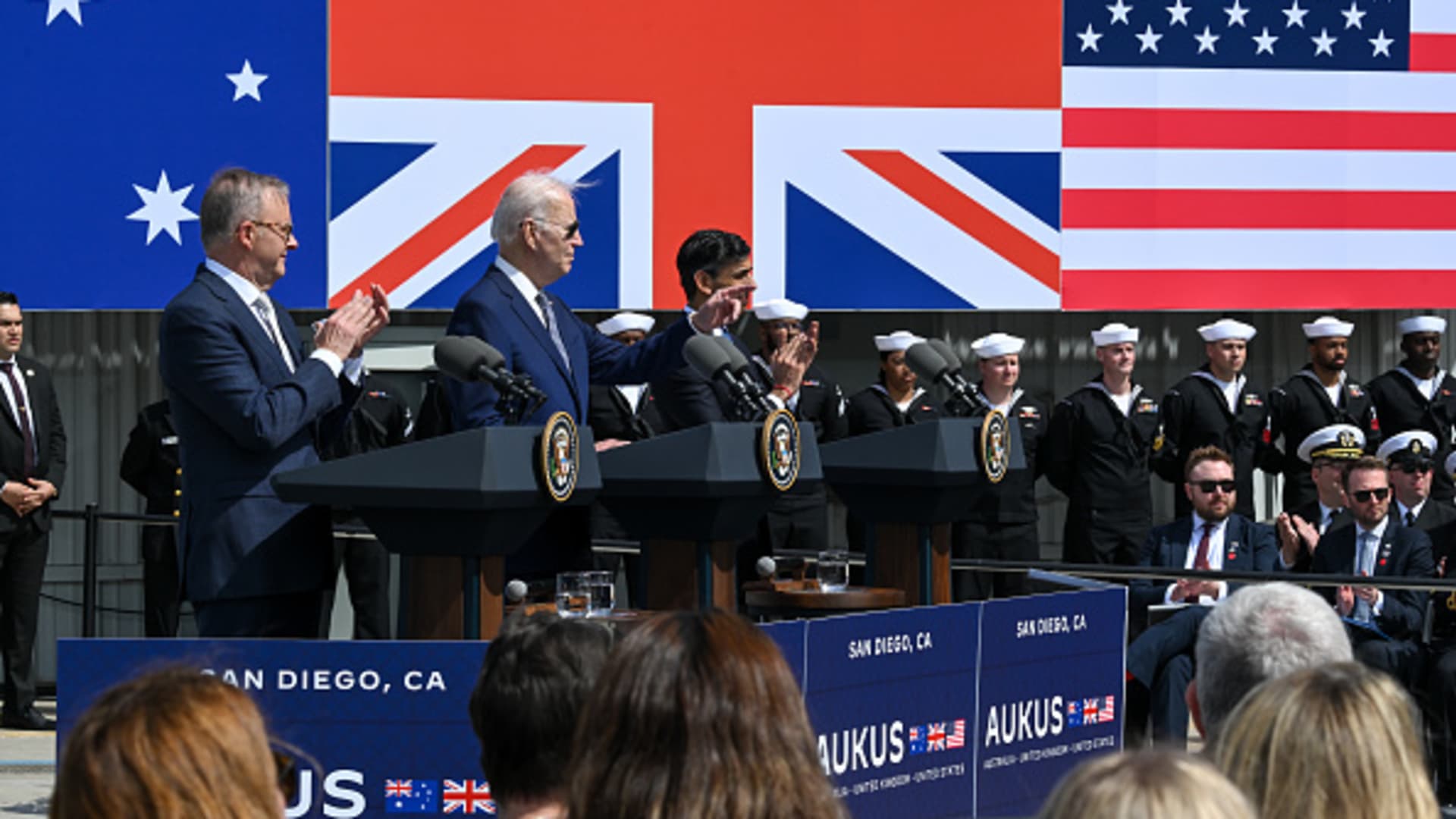U.S. President Joe Biden delivers remarks on Australia, United Kingdom, United States (AUKUS) Partnership as Prime Minister Rishi Sunak of the United Kingdom and Prime Minister Anthony Albanese of Australia participate at Naval Base Point Loma in San Diego, California, United States.
Tayfun Coskun | Anadolu Agency | Getty Images
The trilateral defense and security pact between Australia, U.K., and the U.S. � commonly referred to as AUKUS � is not going to trigger a nuclear arms race in the Indo-Pacific region, said the U.S. Under Secretary of State for Arms Control and International Security.
The security framework seeks to strengthen stability and not “create a problem,” Ambassador Bonnie Denise Jenkins said at a media briefing on Tuesday. “There’s some incorrect information out there about the purpose of AUKUS and what we’re trying to do.”
The AUKUS alliance was forged in 2021 to address shared regional concerns about China’s rising military power and influence. It involved Australia acquiring nuclear-powered attack submarines, among other items of defense cooperation.
China responded at that time, warning of the danger of an arms race as well as nuclear proliferation.

“It’s very important that countries understand that this is not to create a race â€Â� to create any kind of arms’ races. Nuclear-powered submarines are allowed under the nuclear non-proliferation treaty and Australia is not going to become a nuclear weapons state,” she added.
Jenkins said the alliance partners will continue to work with the International Atomic Energy Agency to ensure that “we are doing everything to have the highest operation standards in what we’re trying to do.”ÂÂ
China’s response
China reiterated its warning that Western powers in the AUKUS security pact are provoking division and risking nuclear proliferation in the South Pacific in its latest remarks.
“Through AUKUS, the US is bent on bringing the development of nuclear submarine into the region, which violates the purposes of the South Pacific Nuclear Free Zone Treaty and creates severe risks of nuclear proliferation,” Foreign Ministry spokesperson Wang Wenbin said at a ministry presser.ÂÂ
He accused the the U.S. of bringing “even more countries into the grouping under false pretext,” adding that “China has always opposed bloc confrontation in this region.”

Earlier this month, AUKUS defense ministers said they were considering cooperation with Japan under Pillar 2 of the AUKUS framework. Pillar 2 includes areas such as cyber, artificial intelligence, quantum technologies and undersea capabilities.
“Recognizing Japan’s strengths and its close bilateral defense partnerships with all three countries, we are considering cooperation with Japan on AUKUS Pillar II advanced capability projects,” the statement said.
Jenkins said there’s no “timeline for Japan or any other country with which we are consulting about additional partnerships.”
“It is critical that we conduct a very deliberate process. These are discussions that we’re going to be having with countries based on things that we think are important in terms of what additional partners can bring.”
Read the original article here


